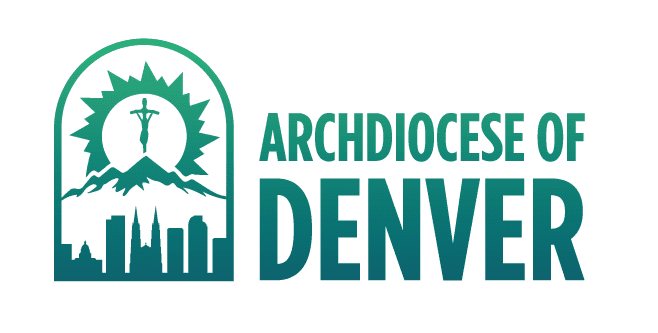On April 12, A Fraternal Open Letter to Our Brother Bishops in Germany was posted publicly that included over 70 signatures (and growing) from Cardinals and Bishops around the world. I added my name to the letter for two key reasons: 1) questions from the faithful within the Archdiocese of Denver about the legitimacy of the efforts by the German bishops to change Church teaching on fundamental issues deserve to be answered; 2) confusion sowed at the universal level by the Synodal Path of the German Bishops calls for a response from bishops around the world who are united in faith.
The letter is brief, respectfully written, and precise about the concern. It is a healthy exercise of the collegiality that is called for by Vatican II, recognizing that the faith is universal in nature, entrusted to the bishops of the world to be proclaimed and defended locally and universally.
The letter is in response to specific trends working through the Synodal Path of the German Bishops that undermine the Deposit of Faith. These include but are not limited to: a desire to change Church teaching regarding the dignity of the sexual act; rejection of the teaching of the character of priestly orders; a call to change the hierarchal nature of Church governance; a failure to uphold the universal nature of Church teaching; and an affirmation that the Deposit of Faith can change. All of this is contrary to the faith and threatens schism.
I would like to stress that the Open Letter is not a call to disengage from dialogue with the world; a dialogue which is always guided by the Spirit of Truth and one that leads to an encounter with Truth, Jesus Christ. The Church has always been in conversation with the world and must continue to these efforts. There is a difference, however, between dialogue and capitulation. The Gospel demands a faithful witness to the truths of the faith, witnessing to the mission to make all things new in Jesus Christ (Revelation 21:5).
Recently both the Polish and Nordic Conferences of Bishops wrote similar letters to the German Bishops expressing deep concerns about the direction of the Synodal Path in Germany and the risk of schism. This Open Letter is done in solidarity with the Bishops of Poland and the Nordic dioceses. Bishops of the world recognize the grave threat to the unity of the faith being proposed for consideration by many, although not all, of the German Bishops. I simply want to lend my voice to those who are concerned.
I would also like to note that my signature on the Open Letter in no way is a call against the synodal process so desired by the Holy Father. Pope Francis has made it clear that we are to be a listening Church, but first to the Holy Spirit and to be grounded in Scripture, prayer and adoration. This is something I strongly support and try to pursue within the Archdiocese of Denver. Our own process, following the process encouraged by Pope Francis has born fruit and brought about conversions. The Church cannot properly witness to the saving truths of our faith without first listening to the needs of all people. That listening, however, cannot lead to any change in the Deposit of Faith. The Church simply does not have the authority to change what Christ himself has given to us. To pursue a path of change in doctrine is to cease to be Catholic. This occurred in the 16th century and has been profoundly harmful to the unity of faith that comes to us through the Scriptures and Sacred Tradition. Furthermore, while not the intention of reformers, it has sadly led to only further divisions as witnessed in the multiple Christian communities at variance with one another.
I am grateful of the fraternal witness of many bishops from around the world against these efforts and their desire for true unity that stays attached to the vine, Jesus Christ, in order to bear fruit. This is why I agreed to be a signatory of the Open Letter.
Archbishop Samuel J. Aquila
A FRATERNAL OPEN LETTER TO OUR BROTHER BISHOPS IN GERMANY
April 11, 2022
In an age of rapid global communication, events in one nation inevitably impact ecclesial life elsewhere. Thus the “Synodal Path” process, as currently pursued by Catholics in Germany, has implications for the Church worldwide. This includes the local Churches which we pastor and the many faithful Catholics for whom we are responsible.
In that light, events in Germany compel us to express our growing concern about the nature of the entire German “Synodal Path” process and the content of its various documents. Our comments here are deliberately brief. They warrant, and we strongly encourage, more elaboration (as, for example, Archbishop Samuel Aquila’s An Open Letter to the Catholic Bishops of the World) from individual bishops. Nonetheless, the urgency of our joint remarks is rooted in Romans 12, and especially Paul’s caution: Do not be conformed to this world. And their seriousness flows from the confusion that the Synodal Path has already caused and continues to cause, and the potential for schism in the life of the Church that will inevitably result.
The need for reform and renewal is as old as the Church herself. At its root, this impulse is admirable and should never be feared. Many of those involved in the Synodal Path process are doubtless people of outstanding character. Yet Christian history is littered with well-intended efforts that lost their grounding in the Word of God, in a faithful encounter with Jesus Christ, in a true listening to the Holy Spirit, and in the submission of our wills to the will of the Father. These failed efforts ignored the unity, experience, and accumulated wisdom of the Gospel and the Church. Because they failed to heed the words of Jesus, “Apart from me you can do nothing” (Jn 15: 5), they were fruitless and damaged both the unity and the evangelical vitality of the Church. Germany’s Synodal Path risks leading to precisely such a dead end.
As your brother bishops, our concerns include but are not limited to the following:
1. Failing to listen to the Holy Spirit and the Gospel, the Synodal Path’s actions undermine the credibility of Church authority, including that of Pope Francis; Christian anthropology and sexual morality; and the reliability of Scripture.
2. While they display a patina of religious ideas and vocabulary, the German Synodal Path documents seem largely inspired not by Scripture and Tradition — which, for the Second Vatican Council, are “a single sacred deposit of the Word of God” — but by sociological analysis and contemporary political, including gender, ideologies. They look at the Church and her mission through the lens of the world rather than through the lens of the truths revealed in Scripture and the Church’s authoritative Tradition.
3. Synodal Path content also seems to reinterpret, and thus diminish, the meaning of Christian freedom. For the Christian, freedom is the knowledge, the willingness, and the unhampered ability to do what is right. Freedom is not “autonomy.” Authentic freedom, as the Church teaches, is tethered to truth and ordered to goodness and, ultimately, beatitude. Conscience does not create truth, nor is conscience a matter of personal preference or self-assertion. A properly formed Christian conscience remains subject to the truth about human nature and the norms of righteous living revealed by God and taught by Christ’s Church. Jesus is the truth, who sets us free (Jn 8).
4. The joy of the Gospel — essential to Christian life, as Pope Francis so often stresses — seems utterly absent from Synodal Path discussions and texts, a telling flaw for an effort that seeks personal and ecclesial renewal.
5. The Synodal Path process, at nearly every step, is the work of experts and committees: bureaucracy-heavy, obsessively critical, and inward-looking. It thus itself reflects a widespread form of Church sclerosis and, ironically, becomes anti-evangelical in tone. In its effect, the Synodal Path displays more submission and obedience to the world and ideologies than to Jesus Christ as Lord and Savior.
6. The Synodal Path’s focus on “power” in the Church suggests a spirit fundamentally at odds with the real nature of Christian life. Ultimately the Church is not merely an “institution” but an organic community; not egalitarian but familial, complementary, and hierarchical — a people sealed together by love of Jesus Christ and love for each other in his name. The reform of structures is not at all the same thing as the conversion of hearts. The encounter with Jesus, as seen in the Gospel and in the lives of the saints throughout history, changes hearts and minds, brings healing, turns one away from a life of sin and unhappiness, and demonstrates the power of the Gospel.
7. The last and most distressingly immediate problem with Germany’s Synodal Path is terribly ironic. By its destructive example, it may lead some bishops, and will lead many otherwise faithful laypeople, to distrust the very idea of “synodality,” thus further impeding the Church’s necessary conversation about fulfilling the mission of converting and sanctifying the world.
In a time of confusion, the last thing our community of faith needs is more of the same. As you discern the Lord’s will for the Church in Germany, be assured of our prayers for you.
Francis Cardinal Arinze (Onitsha, Nigeria)
Raymond Cardinal Burke (Saint Louis, USA)
Wilfred Cardinal Napier (Durban, South Africa)
George Cardinal Pell (Sydney, Australia)
Archbishop Samuel Aquila (Denver, USA)
Archbishop Emeritus Charles Chaput (Philadelphia, USA)
Archbishop Paul Coakley (Oklahoma City, USA)
Archbishop Salvatore Cordileone (San Francisco, USA)
Archbishop Damian Dallu (Songea, Tanzania)
Archbishop Emeritus Joseph Kurtz (Louisville, USA)
Archbishop J. Michael Miller (Vancouver, British Columbia, Canada)
Archbishop Joseph Naumann (Kansas City in Kansas, USA)
Archbishop Andrew Nkea (Bamenda, Cameroon)
Archbishop Renatus Nkwande (Mwanza, Tanzania)
Archbishop Gervas Nyaisonga (Mbeya, Tanzania)
Archbishop Gabriel Palmer-Buckle (Cape Coast, Ghana)
Archbishop Emeritus Terrence Prendergast (Ottawa-Cornwall, Ontario, Canada)
Archbishop Jude Thaddaeus Ruwaichi (Dar-es-Salaam, Tanzania)
Archbishop Alexander Sample (Portland in Oregon, USA)
Bishop Joseph Afrifah-Agyekum (Koforidua, Ghana)
Bishop Michael Barber (Oakland, USA)
Bishop Emeritus Herbert Bevard (Saint Thomas, American Virgin Islands)
Bishop Earl Boyea (Lansing, USA)
Bishop Neal Buckon (Auxiliary, Military Services, USA)
Bishop William Callahan (La Crosse, USA)
Bishop Emeritus Massimo Camisasca (Reggio Emilia-Guastalla, Italy)
Bishop Liam Cary (Baker, USA)
Bishop Peter Christensen (Boise City, USA)
Bishop Joseph Coffey (Auxiliary, Military Services, USA)
Bishop James Conley (Lincoln, USA)
Bishop Thomas Daly (Spokane, USA)
Bishop John Doerfler (Marquette, USA)
Bishop Timothy Freyer (Auxiliary, Orange, USA)
Bishop Donald Hying (Madison, USA)
Bishop Emeritus Daniel Jenky (Peoria, USA)
Bishop Stephen Jensen (Prince George, British Columbia, Canada)
Bishop William Joensen (Des Moines, USA)
Bishop James Johnston (Kansas City-St. Joseph, USA)
Bishop David Kagan (Bismarck, USA)
Bishop Flavian Kassala (Geita, Tanzania)
Bishop Carl Kemme (Wichita, USA)
Bishop Rogatus Kimaryo (Same, Tanzania)
Bishop Anthony Lagwen (Mbulu, Tanzania)
Bishop David Malloy (Rockford, USA)
Bishop Gregory Mansour (Eparchy of Saint Maron of Brooklyn, USA)
Bishop Simon Masondole (Bunda, Tanzania)
Bishop Robert McManus (Worcester, USA)
Bishop Bernadin Mfumbusa (Kondoa, Tanzania)
Bishop Filbert Mhasi (Tunduru-Masasi, Tanzania)
Bishop Lazarus Msimbe (Morogoro, Tanzania)
Bishop Daniel Mueggenborg (Reno, USA)
Bishop William Muhm (Auxiliary, Military Services, USA)
Bishop Thanh Thai Nguyen (Auxiliary, Orange, USA)
Bishop Walker Nickless (Sioux City, USA)
Bishop Eusebius Nzigilwa (Mpanda, Tanzania)
Bishop Thomas Olmsted (Phoenix, USA)
Bishop Thomas Paprocki (Springfield, Illinois, USA)
Bishop Kevin Rhoades (Fort Wayne-South Bend, USA)
Bishop David Ricken (Green Bay, USA)
Bishop Almachius Rweyongeza (Kayanga, Tanzania)
Bishop James Scheuerman (Auxiliary, Milwaukee, USA)
Bishop Augustine Shao (Zanzibar, Tanzania)
Bishop Joseph Siegel (Evansville, USA)
Bishop Frank Spencer (Auxiliary, Military Services, USA)
Bishop Joseph Strickland (Tyler, USA)
Bishop Paul Terrio (Saint Paul in Alberta, Canada)
Bishop Thomas Tobin (Providence, USA)
Bishop Kevin Vann (Orange, USA)
Bishop Robert Vasa (Santa Rosa, USA)
Bishop David Walkowiak (Grand Rapids, USA)
Bishop James Wall (Gallup, USA)
Bishop William Waltersheid (Auxiliary, Pittsburgh, USA)
Bishop Michael Warfel (Great Falls-Billings, USA)
Bishop Chad Zielinski (Fairbanks, USA

